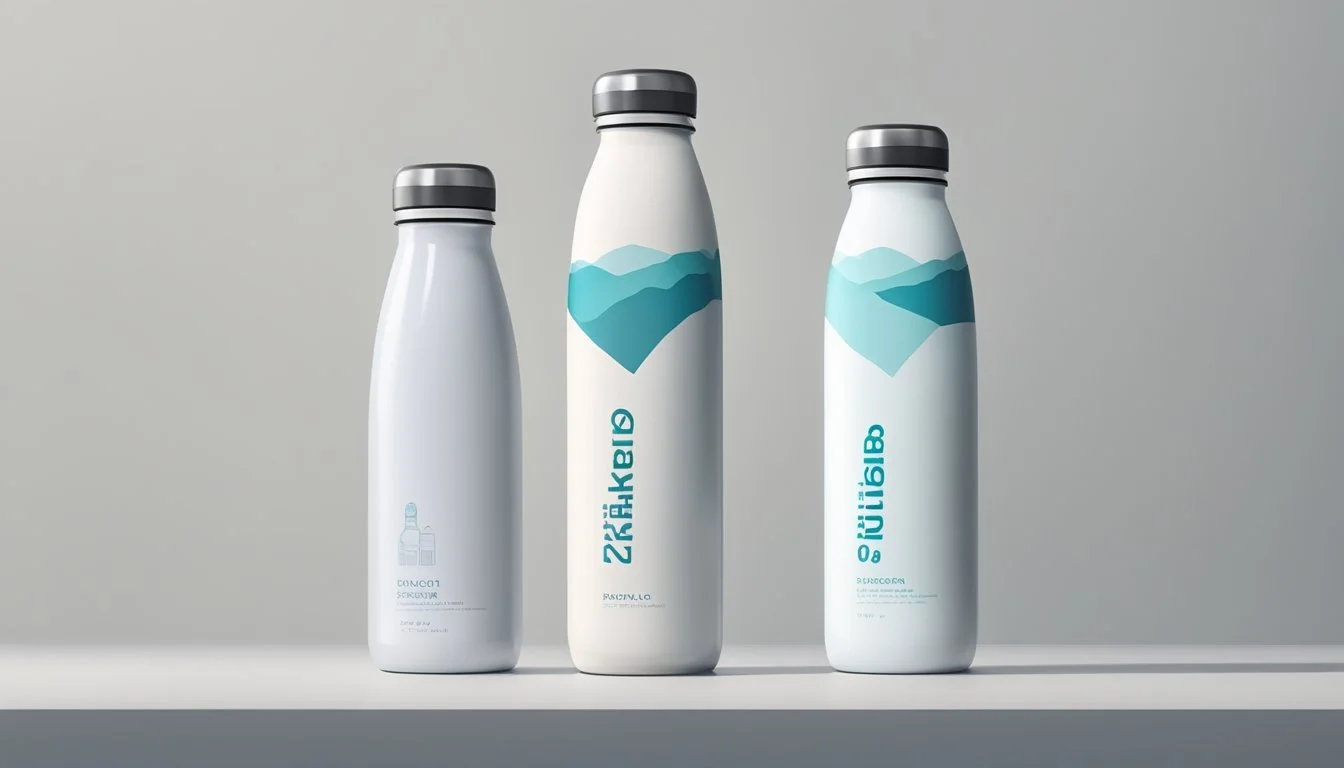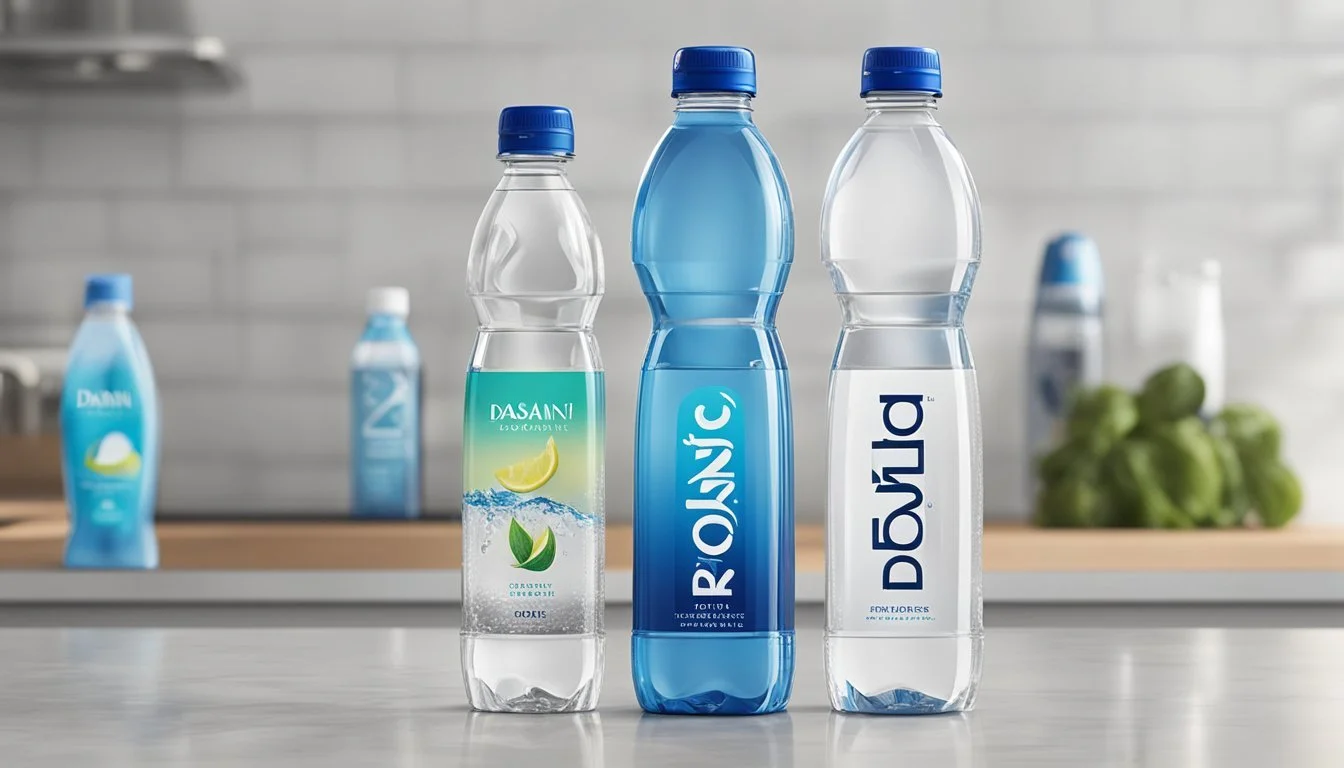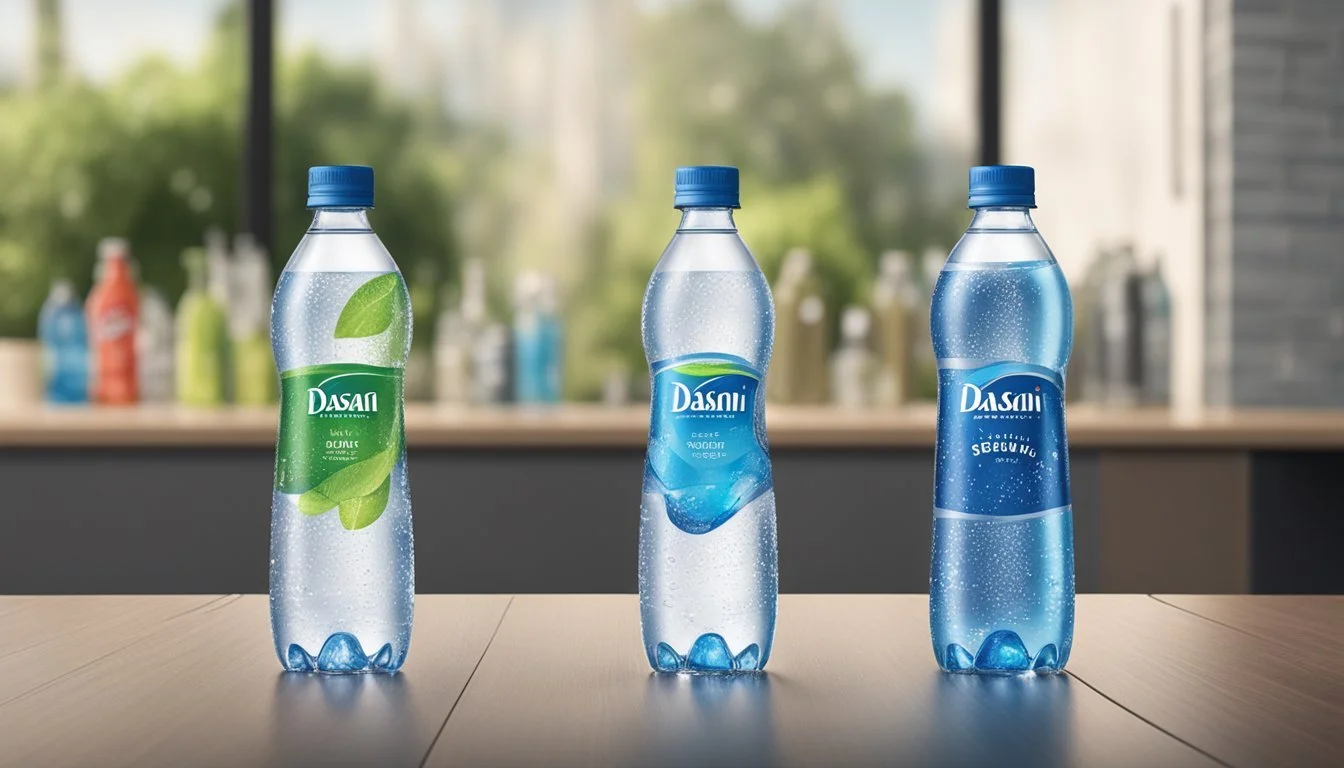Ethos vs. Dasani
Which Bottled Water is Better? A Comprehensive Comparison
When it comes to bottled water, consumers often find themselves comparing brands to determine which offers the best quality and taste. Ethos and Dasani are two popular choices, each with unique characteristics and loyal followings.
Ethos, marketed by Starbucks, emphasizes its commitment to providing clean water to communities in need, while Dasani, a Coca-Cola product, is known for its consistent taste and availability. After comparing the two, Ethos bottled water stands out for its smooth and refreshing profile, making it a preferred choice for many.
Both brands have their pros and cons, but the deciding factor for many consumers comes down to taste and corporate social responsibility. This article will explore the nuances of both brands, helping you to make an informed decision on your next bottled water purchase.
The Evolution of Bottled Water
Bottled water has transformed significantly over the years, driven by changes in health consciousness, technological advancements, and environmental awareness. These developments impact both consumer preferences and industry practices.
Historical Perspective
Bottled water usage dates back to the 18th century when mineral springs were first commercialized. In the United States, the first documented case of bottled water is from Jackson's Spa in Boston around 1767. Initially, these waters were seen as medicinal.
In the late 19th and early 20th centuries, improved sanitation and the rise of carbonated beverages saw a decline in bottled water consumption. However, the mid-20th century witnessed a resurgence with Perrier's aggressive marketing, positioning bottled water as a luxury product.
By the 1980s and 1990s, bottled waters became a staple for health-conscious individuals, largely due to improved bottling technology and increased suspicion toward the quality of tap water. Brands like Evian and Perrier led this charge, appealing to a more affluent consumer base.
Current Trends in Consumption
The 21st century has seen a dramatic increase in bottled water consumption. Convenience is a significant factor, with consumers opting for bottled waters for their portability and availability. Innovations such as flavored and alkaline waters cater to diverse tastes and health trends.
The global market now features a wide selection of branded waters, including both still and sparkling varieties. Emerging trends include the emphasis on source purity and the introduction of enhanced bottled waters, which may contain added vitamins or minerals.
Market research indicates that younger generations are more inclined to choose environmentally-friendly and ethically-sourced products. This shift has given rise to “premium” bottled waters, which emphasize origin, mineral content, and sustainability initiatives.
Environmental Impact of Plastic Use
The increase in bottled water consumption has raised concerns about the environmental impact of plastic use. Each year, millions of tons of plastic waste are generated from discarded water bottles, contributing significantly to pollution.
Efforts are underway to mitigate this issue. Many companies have started using recyclable or biodegradable packaging. Innovations include plant-based plastics and initiatives aimed at reducing single-use plastic. Some brands, like Ethos, combine their environmental mission with social causes, such as providing clean water to underprivileged communities.
Governments and environmental groups advocate for stricter regulation on plastic use and better waste management practices. Consumer awareness also plays a vital role in shifting preferences towards more sustainable alternatives.
Understanding Water Quality and Standards
Water quality is essential for health, encompassing factors like mineral content, pH levels, and contaminants. Stringent regulations ensure bottled water safety and consistency.
FDA Regulations
The FDA oversees bottled water standards in the United States, ensuring products meet specific health and safety requirements. Bottled water must comply with the Federal Food, Drug, and Cosmetic Act.
Quality parameters such as pH levels, bromate, and contaminants are regulated. The FDA mandates that bottled water must not contain harmful bacteria or unacceptable levels of hazardous chemicals.
Each bottled water brand must undergo regular testing to ensure compliance. Labels must accurately reflect content, including the source and mineral composition.
International Standards
Globally, organizations like the World Health Organization (WHO) and the International Bottled Water Association (IBWA) set guidelines for bottled water. These standards focus on mineral content, purity, and allowable contaminant levels.
International standards often align closely with FDA regulations, but some countries may impose stricter requirements. For example, European Union regulations mandate lower permissible limits for certain contaminants and stricter labeling practices.
In addition, bottled water quality is affected by local source conditions, making adherence to international standards essential for consistency across borders.
Brand Profiles: Ethos and Dasani
Ethos and Dasani represent two prominent players in the bottled water industry, each with distinct brand philosophies and corporate backers. Ethos focuses on social impact and sustainability, while Dasani emphasizes quality and large-scale production.
Ethos Water: Brand Ethos and Social Impact
Ethos Water is marketed by Starbucks and aims to address global water issues. Ethos donates a portion of its profits to fund clean water projects in developing countries, emphasizing social responsibility.
The water for Ethos is sourced naturally, leading to variations in taste. Consumers often appreciate this variability, associating it with a more authentic and pure product.
Ethos highlights its commitment to sustainability by using recycled materials for packaging and promoting environmental responsibility.
Dasani: Coca-Cola's Approach to Bottled Water
Dasani, owned by Coca-Cola, is known for its consistent quality and widespread availability. The brand adds minerals to purified water to achieve a balanced, clean taste.
Dasani has faced criticism for environmental impacts due to plastic waste. In response, Coca-Cola has initiated sustainability efforts, including the use of plant-based bottles and increased recycling.
Competitively priced, Dasani seeks to balance affordability with quality, making it a staple among bottled water choices.
Source and Purity
Examining the source and purity of Ethos and Dasani can help determine which is the better bottled water option. These brands differ in their sources and the processes used to ensure purity.
Natural Sources of Leading Brands
Ethos sources its water from natural springs, primarily in the United States. This includes mountain spring water and underground springs. The brand is marketed as offering water from pristine, natural environments, suggesting a focus on the quality of the source. Ethos places a significant emphasis on its mission to support global clean water initiatives, which may appeal to socially conscious consumers.
Dasani, on the other hand, does not emphasize natural sources in its branding. Instead, it uses municipal water supplies similar to what is available from household taps. While this may seem less attractive at first glance, Dasani adds minerals to create a consistent taste profile, which some users prefer for its reliability.
Purity and Treatment Processes
Ethos relies primarily on natural filtration methods associated with its spring sources. The water undergoes basic filtration to remove impurities while retaining its natural mineral content. This makes the purity largely dependent on the source's natural condition, which can vary.
Dasani employs a more technological approach to purification. The water undergoes a process known as Hydro-7 treatment, which includes microfiltration and reverse osmosis. This method ensures a high level of purity by removing contaminants and then reintroducing a controlled amount of minerals. The result is a consistent and clean taste, often described as vapor-distilled water.
Both brands aim for purity, but their approaches highlight their fundamental differences. Ethos depends on the natural purity of its springs, while Dasani leans on advanced purification technology.
Health and Hydration
Ethos and Dasani both offer their own unique benefits when it comes to health and hydration. The following sections will explore their roles in providing necessary electrolytes and minerals, and how they support overall hydration and human health.
Role of Electrolytes and Mineral Content
Dasani: Dasani water is marketed as purified and enhanced, containing a blend of minerals such as magnesium sulfate, potassium chloride, and salt. These additions are designed to provide a consistent and clean taste. The controlled addition of these minerals can support the body's electrolyte balance, crucial for muscle function and hydration.
Ethos: Ethos water is sourced from natural springs and does not have added minerals. This results in a varying mineral profile, as natural sources are subject to change based on environmental factors. The natural spring water provides essential minerals that can aid in hydration and overall health.
Hydration and Human Health
Proper hydration is essential for maintaining bodily functions, from digestion to temperature regulation.
Dasani: With its purified nature and added minerals, Dasani helps ensure that consumers receive a reliable and consistent source of hydration. The added electrolytes can be particularly beneficial after exercise or in hot climates, where electrolyte loss is a concern.
Ethos: Ethos water focuses on providing clean, natural hydration. Its mission includes promoting access to clean water for children, adding a social responsibility angle to its brand. The natural mineral content from its spring sources supports hydration similarly to other natural spring waters.
Both brands cater to different preferences and needs, whether one values consistency and added minerals or prefers the natural variation of spring water.
Taste Profiles and Preferences
Ethos Water and Dasani have distinct taste profiles influenced by their sourcing and mineral content. Consumers often develop brand loyalty based on personal preference and perceived water quality.
The Art of Water Tasting
Taste profiles in bottled water vary based on mineral content and purification processes. Dasani, owned by Coca-Cola, uses reverse osmosis and adds a blend of minerals for a clean, crisp taste. Ethos Water, a Starbucks brand, sources from natural springs, resulting in a taste that can vary based on the natural mineral composition.
Water sommeliers assess these differences by examining the balance of flavors and mouthfeel. Key factors include minerality, which can impart smoothness or a metallic taste, and the level of carbonation. These elements combine to give each brand a unique taste signature that appeals to different palates.
Consumer Preferences and Brand Loyalty
Consumer preferences in bottled water are shaped by taste experiences and brand perceptions. Dasani’s consistent taste profile makes it a reliable choice for many. Ethos Water, though less consistent, attracts those who prefer natural spring water and appreciate its social mission.
Brand loyalty often arises from marketing and personal taste. Factors like packaging, environmental impact, and company ethics play roles in consumer choices. Enthusiasts and casual drinkers alike share experiences on platforms like YouTube, influencing public opinion and helping shape loyalty to a particular brand based on both taste and values.
Comparative Analysis
When comparing Ethos and Dasani, aspects such as their price point, value, market share, and consumer choice come to the forefront. Each brand has distinctive qualities that appeal to different segments of the market.
Price Point and Value
Dasani typically offers a more affordable option in the bottled water market. Priced competitively, it is a popular choice for everyday consumption. The cost-effectiveness stems from its widespread availability and efficient production processes.
Ethos, on the other hand, is often positioned as a premium brand. This is reflected in its pricing, which tends to be higher due to the brand's commitment to social responsibility and sourcing from natural springs. Consumers who purchase Ethos are often driven by the brand's philanthropic efforts towards clean water access.
Market Share and Consumer Choice
Dasani boasts a significant market share, backed by Coca-Cola's extensive distribution network. It is one of the most recognized names among bottled water brands and enjoys high visibility in various retail outlets. Its consistent taste and affordability make it a favored choice among a broad consumer base.
Ethos, associated with Starbucks, targets a niche market. It appeals to consumers who prioritize ethical considerations and environmental impact. While its market share is smaller compared to Dasani, Ethos has a loyal following that values its cause-driven marketing and premium quality.
In essence, Dasani leads in terms of widespread acceptance and cost-effectiveness, whereas Ethos garners respect for its ethical commitment and quality, albeit at a higher price point.
Innovations in Bottling and Sustainability
Bottled water brands, including Dasani and Ethos, are increasingly focusing on innovative solutions to reduce their environmental footprint. Key areas of focus include eco-friendly packaging and future trends aimed at furthering sustainability in the water industry.
Eco-Friendly Packaging Solutions
Dasani has introduced several initiatives aimed at reducing plastic waste. Their PlantBottle, a recyclable PET plastic bottle made partially from plants, is one such innovation. They've also launched the HybridBottle, which combines recycled PET (rPET), PlantBottle material, and virgin PET, aiding in their goal to remove a billion virgin PET plastic bottles from circulation.
Boxed Water offers an alternative by using 100% recyclable and 70% biodegradable cartons. This helps combat the environmental impact of traditional plastic bottles. Their packaging, made primarily from paper, is designed to have a lower carbon footprint compared to plastic or glass.
Ethos Water also emphasizes sustainability, although their methods vary. They primarily source their water from natural springs, potentially minimizing the need for energy-intensive water purification processes.
Future Trends in the Water Industry
Looking forward, the industry is moving towards further innovations in sustainability. Dasani is exploring the use of aluminum cans and bottles, which are more recyclable compared to traditional plastics. These efforts align with their parent company Coca-Cola's "World Without Waste" vision, aiming to increase recycling rates globally.
LIFEWTR focuses on using 100% rPET bottles, presenting another future trend in bottled water. Using recycled materials reduces the demand for virgin plastic production, mitigating environmental impacts.
Biodegradable solutions are another potential trend. Some companies are experimenting with bottles made from biodegradable materials that break down more easily in natural environments, reducing long-term pollution.
Such collective efforts by various brands illustrate a significant shift towards more sustainable practices within the bottled water industry.
Conclusion
In comparing Ethos and Dasani, several factors play a significant role in determining which bottled water is better.
Taste is a subjective consideration. Dasani is known for its consistent, clean taste due to the controlled addition of minerals. Ethos, praised for its taste, can have variations because of its natural source.
Purity is another key factor. Ethos sources its water from natural springs, which can impact its purity positively or negatively depending on the source. Dasani undergoes a rigorous purification process ensuring a consistent level of purity.
When it comes to convenience, both brands offer widespread availability. However, Dasani, owned by Coca-Cola, might be more commonly found in vending machines and convenience stores.
Sustainability is increasingly important for consumers. Dasani has initiatives aimed at reducing plastic use but has faced scrutiny over its environmental impact. Ethos is known for its commitment to sustainability, often focusing on eco-friendly practices and supporting water initiatives around the world.
Factor Ethos Dasani Taste Natural, variable Consistent, mineral-enhanced Purity Natural springs Rigorous purification process Convenience Widely available Extremely convenient Sustainability Eco-friendly, global initiatives Plastic reduction initiatives
More About Ethos
Ethos vs Mountain Valley Spring Water: Which Bottled Water is Better?
Ethos vs Richard's Rainwater: Which Bottled Water is Better?
Ethos vs Whole Foods Italian Still Mineral water: Which Bottled Water is Better?






